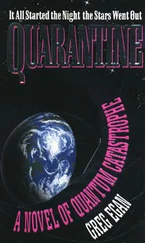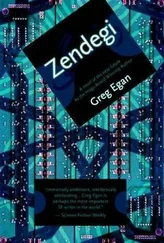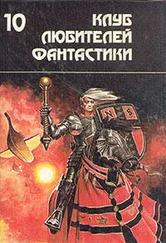Greg Egan - The Eternal Flame
Здесь есть возможность читать онлайн «Greg Egan - The Eternal Flame» весь текст электронной книги совершенно бесплатно (целиком полную версию без сокращений). В некоторых случаях можно слушать аудио, скачать через торрент в формате fb2 и присутствует краткое содержание. Жанр: Фантастика и фэнтези, на английском языке. Описание произведения, (предисловие) а так же отзывы посетителей доступны на портале библиотеки ЛибКат.
- Название:The Eternal Flame
- Автор:
- Жанр:
- Год:неизвестен
- ISBN:нет данных
- Рейтинг книги:4 / 5. Голосов: 1
-
Избранное:Добавить в избранное
- Отзывы:
-
Ваша оценка:
- 80
- 1
- 2
- 3
- 4
- 5
The Eternal Flame: краткое содержание, описание и аннотация
Предлагаем к чтению аннотацию, описание, краткое содержание или предисловие (зависит от того, что написал сам автор книги «The Eternal Flame»). Если вы не нашли необходимую информацию о книге — напишите в комментариях, мы постараемся отыскать её.
The Eternal Flame — читать онлайн бесплатно полную книгу (весь текст) целиком
Ниже представлен текст книги, разбитый по страницам. Система сохранения места последней прочитанной страницы, позволяет с удобством читать онлайн бесплатно книгу «The Eternal Flame», без необходимости каждый раз заново искать на чём Вы остановились. Поставьте закладку, и сможете в любой момент перейти на страницу, на которой закончили чтение.
Интервал:
Закладка:
Carla knew exactly where he was going now—and exactly what his belittling title meant.
“But that gap is precisely the energy attributed to each photon associated with this light wave!” he proclaimed. “So the fact that the wave can only change its energy in discrete steps no longer requires the peculiar fiction of a swarm of particles following the wave around, like mites caught on a breeze.”
Assunto sketched two examples on his chest.

“Are there particles of light in this picture?” he mused. “Not if you think a ‘particle of light’ is something like a tiny grain of sand. The number of photons associated with each wave is really just a label for its energy level, found by counting the steps up from the lowest level. It’s not a count of things you could hold in your hand.”
“The lowest level, with zero photons, doesn’t have zero energy,” Carla protested. “That’s…”
“Strange?” Assunto suggested. “I agree. But the same kind of thing is true of your luxagen in a solid: you can’t make it lie still at the bottom of the valley.”
“Yes, but at least there’s something there in the valley,” Carla replied. “You’re claiming that the void itself has energy—with a contribution from every possible mode of the light field!” Every frequency, every direction, every polarization that any light wave could possess would each leave the vacuum with a trace of energy—without the need for the light waves themselves to be present at all.
Assunto said, “Only changes in energy are detectable. The actual value is a meaningless concept: if you redefine every energy level by adding or subtracting the same amount, that won’t change anything you can measure. So it doesn’t bother me at all if a theory gives a non-zero value for empty space… but if you prefer to subtract that value from everything in sight, bringing the vacuum energy down to zero, go ahead and do that. It won’t make any difference.”
Carla fell silent. The result still struck her as preposterous, but she couldn’t yet see how to argue against it.
“Where has this taken us?” Assunto continued. “We started with Yalda’s light field, which has a precise value at every point in space and every moment in time. But now Patrizia’s principle has given us a theory where we can no longer think that way. Just as a luxagen in a solid lacks a precise location and is spread out across its valley, the amplitude of a light wave must also be spread out across a range of values. In a strong enough light wave, the spread of values can be much less than the peak amplitude of the light, so this need not contradict the way we use waves in conventional optics. But when a single luxagen ‘scatters a photon’—when it lowers by one the photon count for light of a certain frequency and direction, and then raises by one the photon count for light of a different frequency and direction—we should neither expect conventional optics to apply, nor assume that the failure of the old laws means that we’re describing something akin to colliding grains of sand.”
Assunto spread his arms in a gesture of finality. There’d be more details in the paper itself, but his presentation was finished. “Questions?”
Most people in the room looked as if they were still struggling to absorb what they’d heard, but Onesto responded immediately.
“What about luxagens?” he asked Assunto.
“What about them?”
“Can they fit into the same framework? If photons are really just steps in the energy levels of a light wave, can you account for luxagens the same way?”
Assunto said, “When a luxagen wave in a solid rises to a higher energy level, that doesn’t amount to making a new luxagen. It just means the original luxagen has more energy than before.”
“I understand that,” Onesto replied. “But I’m not talking about the energy levels in a solid. You took a light wave traveling through empty space, and showed that the energy levels of each mode amounted to what Carla and Patrizia would have called the number of photons in the wave. So why can’t you do the same thing with a luxagen wave in empty space, finding energy levels for each mode of that wave that correspond to the number of luxagens?”
“Because they’re completely different kinds of waves!” Assunto said. “A light wave isn’t all that different from a wave on a string: the higher its peaks, the more energy it carries. Given that relationship between energy and wave size, we can come along and apply Patrizia’s principle, which forces the energy to take on discrete values.
“But to get luxagen waves in the first place, we’ve already applied Patrizia’s principle to the energy of a single particle. A luxagen wave’s energy has nothing to do with the size of the wave; its overall size is meaningless, only its shape and its frequency matter. How could you apply Patrizia’s principle for a second time, to a wave like that? It would make no sense.”
“I see.” Onesto clearly wasn’t satisfied—but his personal sense of nature’s symmetry would have to defer to these annoying technicalities for now.
Patrizia turned to Carla. “You should be happy! Assunto wasn’t trying to dispute our results; he just found a better way to think about photons.”
“It’s an interesting theory,” Carla admitted begrudgingly. The truth was, it still felt like trespass to her: Assunto had snuck into her room and rearranged the guide ropes, and it didn’t matter whether or not he’d left them tidier than he’d found them. “We should have spotted the same pattern ourselves,” she said. The formula for the energy in a light wave was elementary optics, generations old. If she and Patrizia hadn’t been half-dazed by hunger when they’d come up with the whole idea of energy levels, they might have noticed the analogy and pursued it, long before Assunto had paid the slightest attention to their results.
“So what now?” Patrizia asked eagerly. “Maybe we could write a new paper together, re-analyzing the scattering experiment with the photons treated Assunto’s way.”
“Maybe when I get back,” Carla replied.
“Oh, of course.” In her excitement, Patrizia had forgotten about the Gnat . “In six days you’ll be—”
“Traveling through the void,” Carla said. She watched the other physicists filing out of the room, reverently collecting their copies of Assunto’s paper. “So I’ll let you know if empty space turns out to be full of some mysterious, ineradicable energy.”
22
Carlo woke so abruptly that for a moment he was sure he must have sensed some imminent danger. That idea quickly faded, but the urgency remained. He could feel the tautness of the tarpaulin above him, trapping grit against his skin, and the coolness of the bed below, the resin-caked sand clumping in places. Between these familiar, superficial sensations a third occupied the whole space of his body, a solid presence coexistent with his flesh, agitating every muscle and bone.
Eyes still shut, he reached over toward Carla, but then he stopped himself before his hand touched her shoulder. There was no point acting only to be rebuffed. He dug his fingers into his chest, trying to assuage the ache long enough to make a plan.
You’ve done enough , he could say. You’ve lit the fire with your theories; you can leave it to others to nurture the flames. Why put up with another day’s hunger? Why risk dying out there in the void? This is the time to make yourself immortal: not just loved and remembered, but living on in the flesh of your children. On and on forever, down the generations. The ancestors will hear of your discoveries, your descendants will share in your fame.
Читать дальшеИнтервал:
Закладка:
Похожие книги на «The Eternal Flame»
Представляем Вашему вниманию похожие книги на «The Eternal Flame» списком для выбора. Мы отобрали схожую по названию и смыслу литературу в надежде предоставить читателям больше вариантов отыскать новые, интересные, ещё непрочитанные произведения.
Обсуждение, отзывы о книге «The Eternal Flame» и просто собственные мнения читателей. Оставьте ваши комментарии, напишите, что Вы думаете о произведении, его смысле или главных героях. Укажите что конкретно понравилось, а что нет, и почему Вы так считаете.











